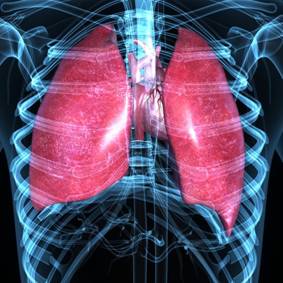Regenerative Medicine Breakthrough Pushes COPD Treatment Forward, Marks Win For Method
 Scientists are moving beyond stem cells to research the ability of fully mature lung cells in the hope that they will help repair tissue damage in patients with conditions such as chronic obstructive pulmonary disease (COPD). In the study, currently published in Nature Communications, for the first time ever, the team observed the type 1 cells give rise to type 2 cells over about three weeks in various models of regeneration.
Scientists are moving beyond stem cells to research the ability of fully mature lung cells in the hope that they will help repair tissue damage in patients with conditions such as chronic obstructive pulmonary disease (COPD). In the study, currently published in Nature Communications, for the first time ever, the team observed the type 1 cells give rise to type 2 cells over about three weeks in various models of regeneration.
To elaborate on types of lung cells and the role they play, there are two main types - Type 1 cells, which is where oxygen and carbon dioxide are exchanged during breathing, and type 2, which secrete surfactants, a type of lubricant integral to the breathing process.
Researcher and University of Pennsylvania cardiologist Rajan Jain noted that new cells were observed growing back into new areas of the lung. “It's as if the lung knows it has to grow back and can call into action some type 1 cells to help in that process," According to Dr. Jon Eptein, also of the University of Pennsylvania, said the “observation suggested that there is much more flexibility in the pulmonary system than previously believed.”
So what does this mean for COPD patients?
If this research proves accurate and consistent, the ability to regrow damaged lung tissue on demand could completely change treatment options for COPD patients. Physicians could focus less on trying to specialize stem cells and could essentially force mature lung cells to revert back to a stem, specializing themselves.

